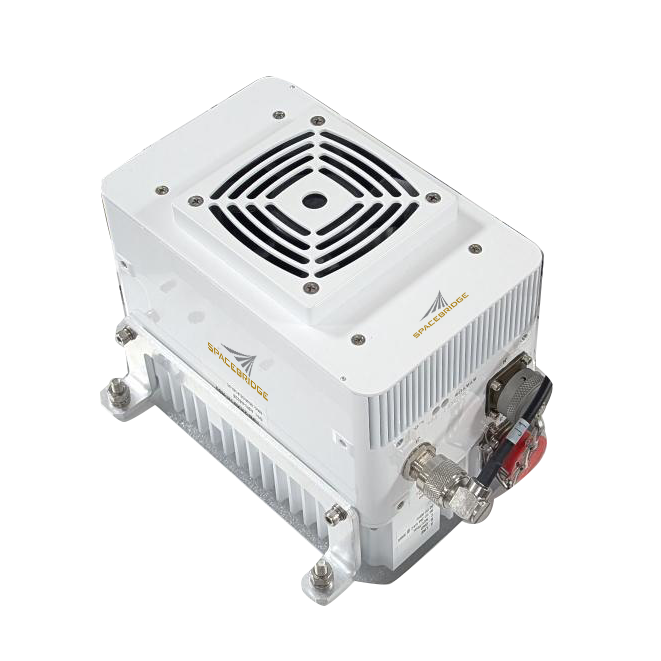Product Details
- Home
- RF HPA/BUC
- 25 W C-band Outdoor Multicarrier Gen III GaN BUC
25 W C-band Outdoor Multicarrier Gen III GaN BUC
This compact yet powerful 25W outdoor BUC harnesses advanced technology, delivering exceptional broadband RF performance, high efficiency, and outstanding linearity and reliability for applications such as broadcast contribution and CBH
Contact us
- Benefits
- Features
- Applications and Uses
The device offers a wide range of monitoring and control capabilities, all easily accessible through Ethernet, serial RS232 and RS485 interfaces and Form-C dry contacts. It’s the best-in-class solution for any demanding mobile or fixed application, designed for all-outdoor installations. This device does not require the additional air conditioning, or shelter. Therefore there is no W/G RF loss than installed in a shelter.
- Built-in 1:1 Redundancy, no External Redundancy Controller required
- High Linearity, efficiency and MTBF
- Built-in High Precision true RMS Output Power Meter
- Built-in 110/220 VAC power supply
- Web Interface, SNMP support
- Output Overdrive Protection
- Output VSWR Protection
- Thermal shutdown
In addition to its exceptional performance and reliability, this device boasts a comprehensive suite of monitoring and control capabilities, easily accessible via Ethernet, serial RS232, RS485 interfaces, or dry contacts. It is the premier choice for demanding mobile and fixed applications, specifically designed for outdoor installations, and offers the advanced capability to utilize high MODCOD (up to 256 APSK) for broadcast contribution, as well as for Cellular Backhaul (CBH) and high-capacity data transmission for VSAT and SCPC user terminals.
With an IP67 ingress protection rating, the device can be mounted outdoors under direct sunlight—on an antenna post or kingpost, on the platform behind the antenna, or inside the antenna hub—effectively eliminating the waveguide RF loss commonly associated with indoor units. Additionally, it does not require air conditioning, resulting in significant reductions in ongoing electrical and maintenance costs, while eliminating the need for nearby shelter construction.






